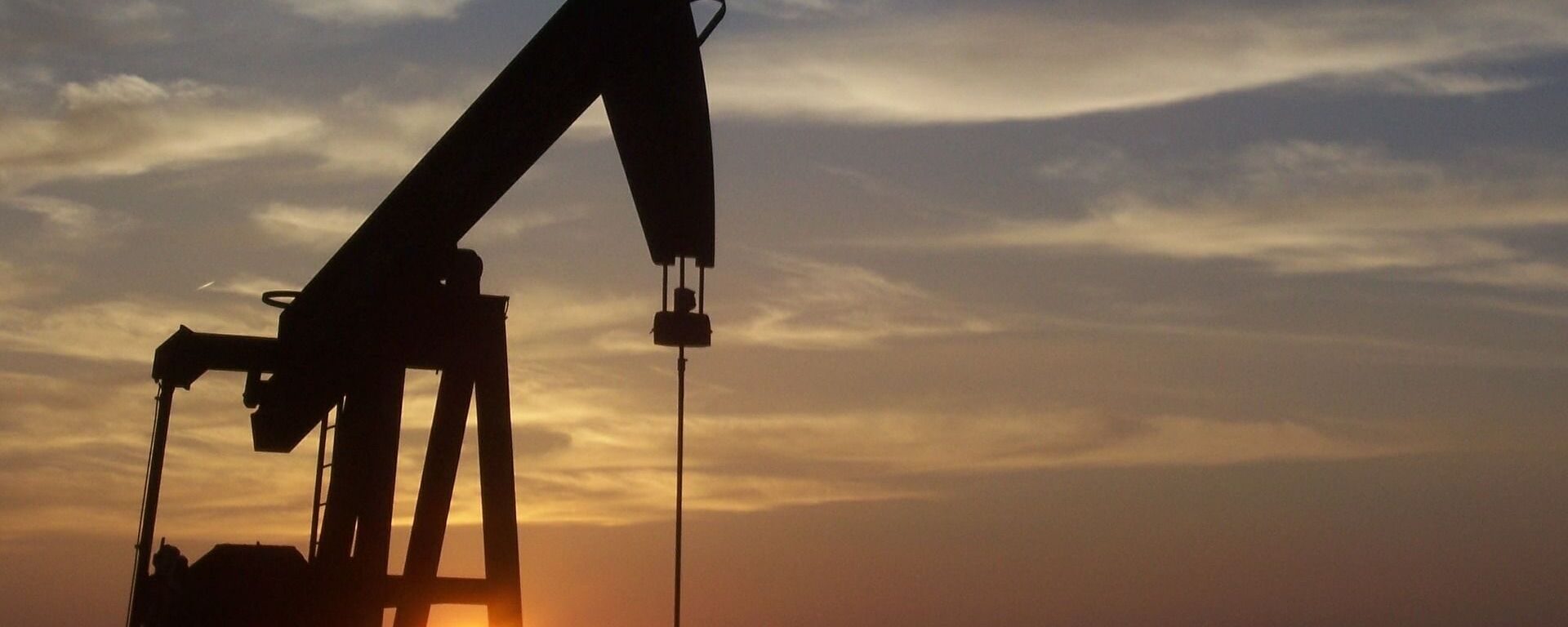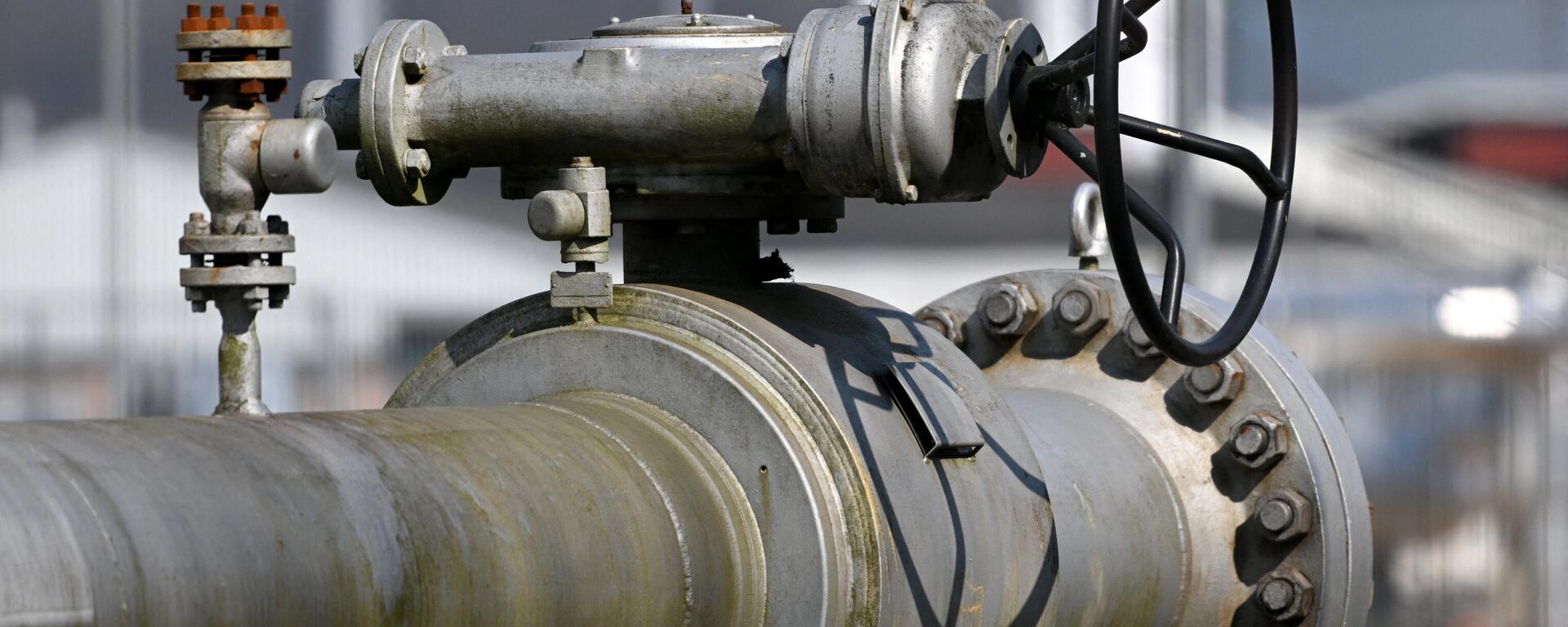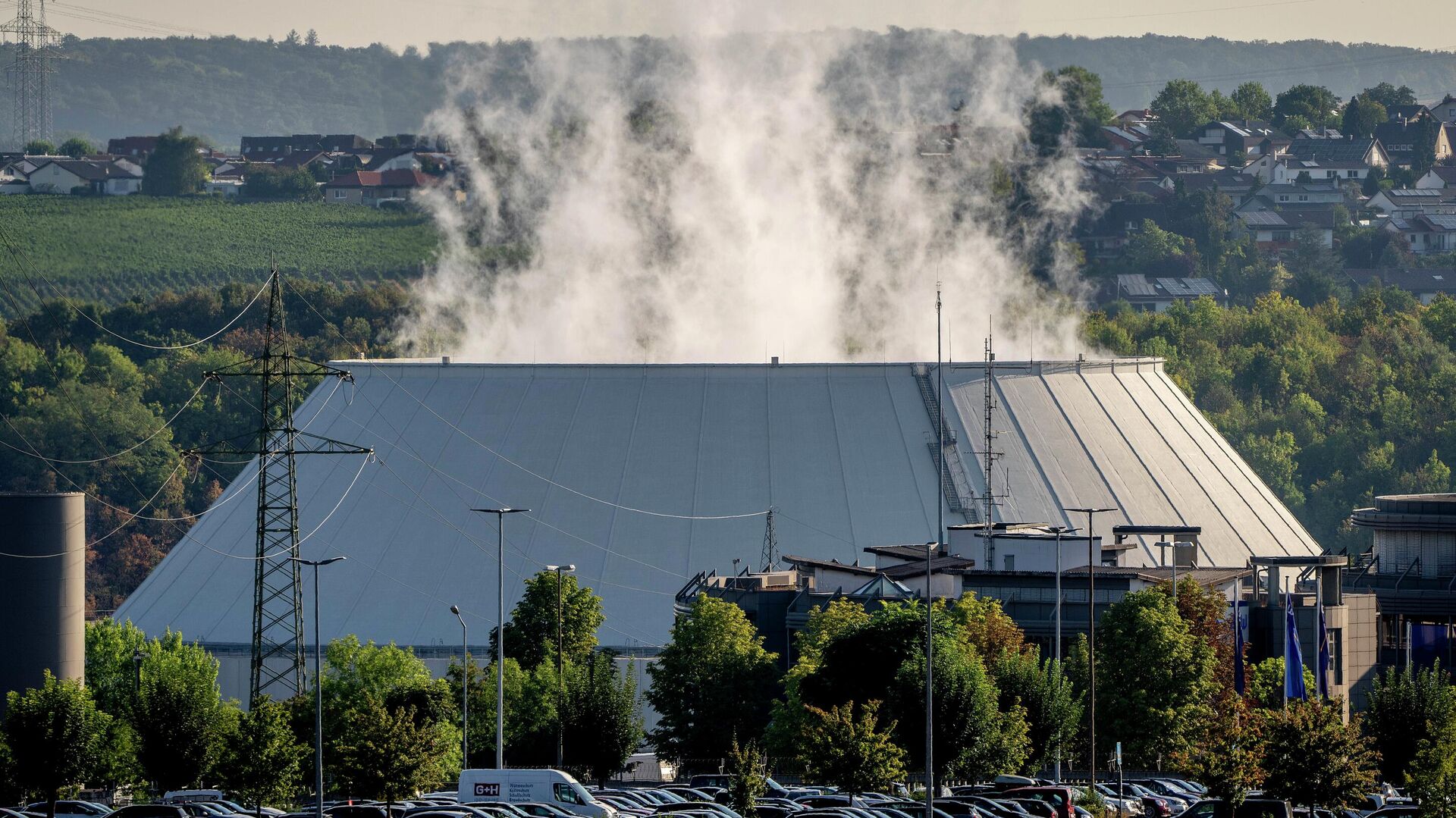https://sputnikglobe.com/20221025/iea-says-world-in-grips-of-first-truly-global-energy-crisis--1102604428.html
World in Grips of 'First Truly Global Energy Crisis', Says IEA
World in Grips of 'First Truly Global Energy Crisis', Says IEA
Sputnik International
After hours of wrangling at their recent summit in Brussels, European Union leaders again failed to come to an agreement on the topic of capping the price of... 25.10.2022, Sputnik International
2022-10-25T10:26+0000
2022-10-25T10:26+0000
2022-11-15T14:17+0000
world
european union (eu)
ukraine crisis
energy crisis
gas
https://cdn1.img.sputnikglobe.com/img/07e6/0a/19/1102605533_0:207:2907:1842_1920x0_80_0_0_92b87806254e51d52ed84800e42cc7b8.jpg
The world is in the grips of "the first truly global energy crisis", the head of the International Energy Agency (IEA) warned on Tuesday.Liquefied natural gas (LNG) markets will continue to tighten worldwide, with only 20Bln cubic meters of new LNG capacity anticipated by next year, the IEA's executive director Fatih Birol said during Singapore International Energy Week.He also weighed in on the recent move by the Organization of the Petroleum Exporting Countries (OPEC) and its allies - known as OPEC+ - to cut production by 2Mln barrels per day (bpd).With the IEA forecasting that global oil demand is likely to grow by approximately 2Mln bpd this year, Birol said:As the bitter energy crisis - which began in Europe as part of a global trend - was further accelerated by self-damaging packages of western sanctions adopted against Russia because of its special military operation in Ukraine, fuel prices have rocketed, bringing with them the prospect of energy shortages and eye-watering bills for consumers.Amid dire forecasts for the winter, Birol suggested that Europe would take a mild battering if the weather remained relatively clement.As oil consumption is expected to grow by 1.7 million bpd in 2023, Russian crude will be needed to meet global demand, Birol highlighted. The IEA chief speculated that the G7-proposed mechanism to allow emerging nations to buy Russian oil at an enforced price cap would require the buy-in of major oil importing nations. However, he voiced cautious optimism over a recent report that up to 80 percent or 90 percent of Russian oil will purportedly continue to flow outside the proposed cap.Birol also hinted that another release of crude from the strategic oil reserves is not being considered at present.Last month, the Group of Seven countries agreed to cap Russian oil sales at an enforced low price by 5 December, despite warnings from major players in the global industry that the move could paralyze the trade in crude worldwide. However, forecasting resilience in Russian oil trade, a US Treasury official was cited as telling Reuters that up to 80 percent to 90 percent of Russian oil will continue to flow outside the cap mechanism. Divisive 'Price Cap' IssueThe US, Britain, and the EU slapped several packages of sanctions on Russia in response to Moscow launching its special military operation in Ukraine on 24 February 2022. The restrictions led to an energy crisis in the EU, Britain, and many other countries amid record-high fuel prices and rocketing inflation. When the EU discussed possible caps on Russian gas, Moscow warned that if the move were to be implemented, it would be discard contracts to supply fuel to Europe. Kremlin spokesman Dmitry Peskov stressed that the of idea of the G7 states putting a limit on the price of Russian oil was " absurd" and would destabilize energy markets.Nevertheless, as Europe heads into winter and the threat of soaring gas prices and supply failures increases, leaders of the European Union, after hours of wrangling, supported the idea of joint purchasing of gas and creating a new gas price benchmark by early 2023, in a public show of unity that attempted to conceal the growing rifts over the fall-out from Russian sanctions.Although the European Commission President told reporters that the EU had a "very good and solid roadmap to keep on working on the topic of energy prices”, the timeframe on when a decision on price caps would be made was conspicuously absent. Germany, the EU’s biggest economy, has argued a cap risked 'freezing' Europe out of the gas market, as it urged increased gas production, according to the document cited by pan-European media network EURACTIV.“We are asked to show solidarity in sharing energy, but there is no solidarity on our calls for containing prices,” Italy’s former Prime Minister Mario Draghi said. Prime Minister Alexander de Croo of Belgium, which exports gas to neighboring Germany, was quoted as adding: “Solidarity should not just be on supply — it should also be on prices.” Meanwhile, as the majority of EU member-countries demand a broad cap on wholesale gas prices, a smaller number are pushing for a narrower price cap on Russian natural gas used to generate power. However, the EU bloc’s executive arm, the European Commission, has called for caution on the issue ahead of a key Tuesday ministerial meeting, according to insiders cited by Bloomberg. EU members are reportedly advised that such a price limit would have to be extended to power-importing countries such as the UK or Switzerland if they hope for it to be effective. For this model, similar to the one in place in Spain and Portugal, to come into force, it would need to be proposed by the EU commission and then win approval from the bloc’s members.As the commission circulated a document summarizing the "costs and benefits" of such a price cap, it was purportedly stated that alternatively, the EU would have to export electricity at a higher price than in domestic trades. Such a move has been prohibited in successive international agreements with partners, a source added.The EU warning is said to have underscored that under a narrower cap, member states would be forced to pay their country’s gas-fired power plants a subsidy covering the difference between the day-ahead price on the Dutch Title Transfer Facility (TTF) and a target gas price for power generation. Several member states have reportedly proposed that the subsidy should limit the price of gas to the equivalent of a TTF price of 100-120 euros ($100 to $120) per megawatt hour. The costs of such a price cap would depend on the number of gas-powered power plants in member states.Germany, the Netherlands and Italy, that rely on that fuel for electricity production, would face the highest costs of necessary subsidies. However, countries such as France, that import power generated from gas, would be the winners in such an approach. To tackle the foreseeable opposition to the move, the EU would need a mechanism to redistribute the costs of the price cap in accordance with entailed benefits, added the report, in yet another indication that the divisive challenges are eating away at the bloc's unity amid the energy crunch and the cost of living crisis.
https://sputnikglobe.com/20221012/no-plan-for-secondary-russia-sanctions-after-oil-price-cap-in-place-us-treasury-1101779675.html
https://sputnikglobe.com/20221022/why-eu-leaders-cannot-agree-on-russian-gas-price-cap-1102512685.html
https://sputnikglobe.com/20221001/demonstrators-hit-londons-streets-to-protest-against-energy-prices-and-cost-of-living-crisis-1101415413.html
Sputnik International
feedback@sputniknews.com
+74956456601
MIA „Rossiya Segodnya“
2022
News
en_EN
Sputnik International
feedback@sputniknews.com
+74956456601
MIA „Rossiya Segodnya“
Sputnik International
feedback@sputniknews.com
+74956456601
MIA „Rossiya Segodnya“
european union (eu), ukraine crisis, energy crisis, gas
european union (eu), ukraine crisis, energy crisis, gas
World in Grips of 'First Truly Global Energy Crisis', Says IEA
10:26 GMT 25.10.2022 (Updated: 14:17 GMT 15.11.2022) After hours of wrangling at their recent summit in Brussels, European Union leaders again failed to come to an agreement on the topic of capping the price of Russian gas - part of the US-led agenda to hamper Moscow's revenue and cripple its economy through economic sanctions because of the ongoing special military operation in Ukraine.
The world is in the grips of "the first truly global energy crisis", the head of the International Energy Agency (IEA) warned on Tuesday.
Liquefied natural gas (LNG) markets will continue to tighten worldwide, with only 20Bln cubic meters of new LNG capacity anticipated by next year, the IEA's executive director Fatih Birol said during Singapore International Energy Week.
He also weighed in on the recent move by the Organization of the Petroleum Exporting Countries (OPEC) and its allies - known as OPEC+ -
to cut production by 2Mln barrels per day (bpd).
With the IEA forecasting that global oil demand is likely to grow by approximately 2Mln bpd this year, Birol said:
“[It is] especially risky as several economies around the world are on the brink of a recession, if we are talking about the global recession...I found this decision really unfortunate."
As the bitter
energy crisis - which began in Europe as part of a global trend - was further accelerated by self-damaging packages of western sanctions adopted against Russia because of its special military operation in Ukraine, fuel prices have rocketed, bringing with them the prospect of energy shortages and eye-watering bills for consumers.
Amid dire forecasts for the winter, Birol suggested that Europe would take a mild battering if the weather remained relatively clement.
"Unless we will have an extremely cold and long winter, unless there are any surprises in terms of what we have seen, for example the Nordstream pipeline explosion, Europe should go through this winter with some economic and social bruises," he stated.
As oil consumption is expected to grow by 1.7 million bpd in 2023, Russian crude will be needed to meet global demand, Birol highlighted. The IEA chief speculated that the G7-proposed mechanism to allow emerging nations to buy Russian oil at an
enforced price cap would require the buy-in of major oil importing nations. However, he voiced cautious optimism over a recent report that up to 80 percent or 90 percent of Russian oil will purportedly continue to flow outside the proposed cap.
"I think this is good because the world still needs Russian oil to flow into the market for now. An 80 percent to 90 percent level is good and encouraging to meet the demand," Birol said.
Birol also hinted that another release of crude from the strategic oil reserves is not being considered at present.
Last month, the Group of Seven countries agreed
to cap Russian oil sales at an enforced low price by 5 December, despite warnings from major players in the global industry that the move could paralyze the trade in crude worldwide. However, forecasting resilience in Russian oil trade, a US Treasury official was cited as telling Reuters that up to 80 percent to 90 percent of Russian oil will continue to flow outside the cap mechanism.
"In theory there is a big enough shadow fleet to continue Russian crude flows after 5 December," Andrea Olivi, head of wet freight at Trafigura commodities trading giant said.
Divisive 'Price Cap' Issue
The US, Britain, and the EU slapped several packages of
sanctions on Russia in response to Moscow launching its special military operation in Ukraine on 24 February 2022. The restrictions led to an
energy crisis in the EU, Britain, and many other countries amid record-high fuel prices and rocketing inflation.

12 October 2022, 17:41 GMT
When the EU discussed possible caps on Russian gas, Moscow warned that if the move were to be implemented, it would be discard contracts to supply fuel to Europe. Kremlin spokesman Dmitry Peskov stressed that the of idea of the G7 states putting a limit on the price of Russian oil was " absurd" and would destabilize energy markets.
Nevertheless, as Europe heads into winter and the threat of soaring gas prices and supply failures increases, leaders of the European Union, after hours of wrangling,
supported the idea of joint purchasing of gas and creating a new gas price benchmark by early 2023, in a public show of unity that attempted to conceal the growing rifts over the fall-out from Russian sanctions.
"We are going to establish a market correction mechanism exactly to limit episodes of excessive gas prices... Here we will work with the energy ministers to submit a legal proposal to operationalize this market correction mechanism," European Commission President Ursula Von der Leyen said on 21 October at the EU summit.
Although the European Commission President told reporters that the EU had a "very good and solid roadmap to keep on working on the topic of energy prices”, the timeframe on when a decision on price caps would be made was conspicuously absent. Germany, the EU’s biggest economy, has argued a cap risked 'freezing' Europe out of the gas market, as it urged increased gas production, according to the document cited by pan-European media network EURACTIV.
“We are asked to show solidarity in sharing energy, but there is no solidarity on our calls for containing prices,” Italy’s former Prime Minister Mario Draghi said. Prime Minister Alexander de Croo of Belgium, which exports gas to neighboring Germany, was quoted as adding: “Solidarity should not just be on supply — it should also be on prices.”

22 October 2022, 07:00 GMT
Meanwhile, as the majority of EU member-countries demand a broad cap on wholesale gas prices, a smaller number are pushing for a narrower price cap on Russian natural gas used to generate power. However, the EU bloc’s executive arm, the European Commission, has called for caution on the issue ahead of a key Tuesday ministerial meeting, according to insiders cited by Bloomberg. EU members are reportedly advised that such a price limit would have to be extended to power-importing countries such as the UK or Switzerland if they hope for it to be effective. For this model, similar to the one in place in Spain and Portugal, to come into force, it would need to be proposed by the EU commission and then win approval from the bloc’s members.
As the commission circulated a document summarizing the "costs and benefits" of such a price cap, it was purportedly stated that alternatively, the EU would have to export electricity at a higher price than in domestic trades. Such a move has been prohibited in successive international agreements with partners, a source added.
The EU warning is said to have underscored that under a narrower cap, member states would be forced to pay their country’s gas-fired power plants a subsidy covering the difference between the day-ahead price on the Dutch Title Transfer Facility (TTF) and a target gas price for power generation. Several member states have reportedly proposed that the subsidy should limit the price of gas to the equivalent of a TTF price of 100-120 euros ($100 to $120) per megawatt hour. The costs of such a price cap would depend on the number of gas-powered power plants in member states.
Germany, the Netherlands and Italy, that rely on that fuel for electricity production, would face the highest costs of necessary subsidies. However, countries such as France, that import power generated from gas, would be the winners in such an approach.
To tackle the foreseeable opposition to the move, the EU would need a mechanism to redistribute the costs of the price cap in accordance with entailed benefits, added the report, in yet another indication that the divisive challenges are eating away at the bloc's unity amid the energy crunch and the
cost of living crisis.

1 October 2022, 12:17 GMT





